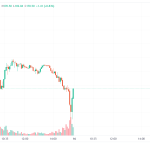This involves a mix of practical strategies, psychological self-awareness, and personal growth, which are complex and Detailed.
Unlocking Trading Success - Loss Management & Emotional Control
Your reflection on the nature of Self-discipline and Emotional control in trading underscores a crucial aspect of success in this challenging field. Here’s a more detailed breakdown of the concepts and their implications.
- Self-Discipline and Emotional Control: These are not innate traits but skills that can be developed. In trading, they are essential for managing risk, making rational decisions, and sticking to a strategy even in the face of adverse conditions.
- Learning Process: The trial-and-error approach you mentioned is a common way to develop these skills, but it’s fraught with risks. For many, this process results in significant financial losses and emotional distress. The journey involves repeated mistakes and the emotional toll of managing them, which can be both costly and disheartening.
- Challenges of the Trial-and-Error Method: The financial cost of this learning process can be prohibitive. Many traders exhaust their capital before they acquire the necessary skills. Even those who survive financially might struggle with the psychological scars of their early experiences, which can hinder their progress and performance.
- The Rare Successes: Only a small fraction of traders manage to navigate these challenges successfully. This rarity highlights the difficulty of mastering trading and the importance of finding efficient ways to learn and develop the required mental skills.
- Difficulty in Articulating Success: Successful traders often find it challenging to explain the nuances of their strategies and the mental discipline they’ve cultivated. This difficulty in articulation might be because these skills are deeply personal and intuitive, making them hard to translate into concrete advice.
- Market Knowledge vs. Personal Discipline: While understanding market mechanics is crucial, it’s not sufficient on its own. Traders must also develop personal discipline and emotional control to apply this knowledge effectively. The advice from experienced traders to focus on these mental skills underscores their importance in achieving consistent success.
In essence, while market knowledge is vital, the ability to manage oneself through self-discipline and emotional control often makes the difference between fleeting success and sustained achievement in trading.
Minimize Your Losses Quickly
The challenge of explaining how to "cut your losses short" in trading lies in the deeply personal and emotional aspects that influence decision-making. Here’s a breakdown of why this advice is so difficult to implement and communicate effectively:
Why Minimize Your Losses is Challenging
- Emotional Stakes: When a trade goes wrong, traders often experience fear and regret, compounded by the pressure to avoid admitting a mistake. The possibility that the market might turn around can create a false hope, making it hard to let go of a losing position. This emotional conflict can cloud judgment and lead to holding onto losses longer than advisable.
- Psychological Conflict: Traders face a psychological battle between their fear of loss and the temptation to wait for a potential reversal. The latter is fuelled by the belief that cutting a loss might mean missing out on a possible recovery, thus compounding the emotional strain.
- Abstract Nature of Self-Discipline and Emotional Control: These concepts are indeed abstract and difficult to define concretely. They involve a range of psychological skills and personal insights that vary from individual to individual. Unlike concrete trading strategies, self-discipline and emotional control are internal processes that are less tangible and harder to teach.
Steps to Learning How to Cut Losses
- Develop a Trading Plan: Establish a clear plan before entering any trade. This should include entry and exit points, risk management strategies, and predetermined criteria for cutting losses. Having a structured plan reduces the influence of emotions at the moment of decision-making.
- Set Stop-Loss Orders: Implement stop-loss orders to automate the process of cutting losses. This helps take emotion out of the equation by ensuring that trades are closed automatically once they reach a predefined level of loss.
- Practice Discipline Through Simulation: Use trading simulations to practice cutting losses in a risk-free environment. This can help build the discipline needed to execute these strategies in real trading scenarios.
- Reflect on Past Trades: Analyze past trades to understand why certain losses were not cut short. Identify patterns and triggers that led to poor decision-making and develop strategies to address these issues in the future.
- Emotional Awareness and Management: Work on understanding your emotional responses to losses. Techniques such as mindfulness, journaling, or even psychological counselling can help manage the stress and emotional turbulence associated with trading losses.
- Seek Feedback and Mentorship: Engage with experienced traders or mentors who can provide guidance on developing emotional control and self-discipline. They can offer insights based on their own experiences and help you navigate the psychological aspects of trading.
The Challenges of Implementing General Trading Advice
The advice to "learn self-discipline and emotional control" is often given because it encapsulates the essential mindset needed for trading success, but it lacks specific guidance on how to achieve these skills. This is because:
- Individual Variability: Each trader’s psychological makeup is unique, and what works for one person may not work for another. Personalized approaches are required, which are difficult to standardize and teach broadly.
- Intangible Nature: As you mentioned, self-discipline and emotional control are abstract and hard to quantify. Teaching these skills often involves personal introspection and growth, which are challenging to convey in a straightforward manner.
Conclusion
In summary, while " Minimize Your Losses Quickly" is solid advice, the real challenge lies in developing the internal discipline and emotional control needed to act on this advice effectively. This involves a mix of practical strategies, psychological self-awareness, and personal growth, which are complex and Detailed.
Leave a comment
Your email address will not be published. Required fields are marked *



